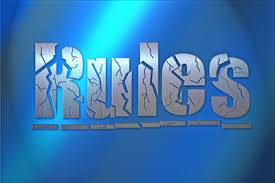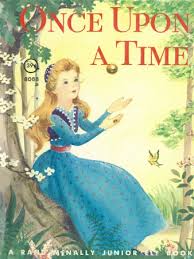
College Essays Are Like Mini-Memoirs
I just read a memoir where the author shared a piece of writing advice that Toby Wolff gave her. Wolff wrote “This Boy’s Life,” one of the best memoirs out there. Anyway, memoirs are books written about yourself. In a way, college essays are like mini-memoirs. They could easily be a chapter in your own memoir, especially if you share a story in your essay.
All that said, here’s the little nugget of advice Toby Wolff gave the author, Mary Karr. (He sure looks believable to me!) It’s almost too simple to appreciate, until you try writing about yourself:
Don’t approach your history as something to be shaken for its cautionary fruit…Tell your stories, and your story will be revealed…Don’t be afraid of appearing angry, small-minded, obtuse, mean, immoral, amoral, calculating, or anything else. Take no care for your dignity. Those were hard things for me to come by, and I offer them to you for what they may be worth.
(A quote from Toby Wolff in the memoir entitled, “lit,” by Mary Karr.)
To me, the little secret in this advice is to just tell your story in a straightforward, honest way and a lot of your message or meaning or lesson will be naturally revealed. In other words, don’t try too hard to teach or preach your message.
Hope that’s not too heady. Like a lot of simple-sounding advice, it’s harder to do than you think. But worth trying.
I just found this link to a wonderful blog on college admissions sponsored by the New York Times, called “The Choice.” Here’s a post from another writer talking about how these essays are really like memoirs!
https://thechoice.blogs.nytimes.com/2010/09/07/essay-as-memoir/#comment-58117
Great insights from a college admissions guru
https://thechoice.blogs.nytimes.com/2010/08/04/feel-free/
click on this link to read a great little piece
of valuable advice on landing the college of your dreams…
Jobs Can Make Excellent Topics for College Essays!

My students have discovered some of their best topic ideas for their college application essays from their job experiences.
I’m not sure why they make great fodder for college essays, but I believe that simply working for others naturally reveals a complimentary set of qualities, skills and values—humility, determination, perseverance, responsibility, people skills, industriousness, dependability, and the good old work ethic.
It’s no coincidence that these are the same qualities and skills that you need to succeed in college—and what college admissions folks are looking for!
I also think work experiences often fall under the category of “mundane” or everyday topics—which is a good thing!
Former students have written lively essays out working at places like Circuit City, a shoe store, ushering at a playhouse, serving gelato, washing dishes at fancy restaurant, bagging groceries at Ralph’s, working at Dunkin Donuts, etc.
Most work places lack glamour, and that naturally makes them feel “real,” authentic and interesting.
And although we have all worked in our lives, it’s always fun to learn about what it’s like at those places we never worked, no matter how pedestrian they seem (so the essays are naturally interesting to read).
When you think of past jobs, explore them for those other features that make great essays:
- Something happened. (Look for a little story or moment or example to tell)
- There was a problem. (Something went wrong; you messed up; you couldn’t do it correctly; you were scared; someone was in your way; etc.)
- The event or context was “mundane,” meaning simple and common in nature. (in this case, your job or the related problem: cleaning houses, serving burgers, etc.)
- You learned a lesson. (How you turned something negative into a positive.)
- There was something “unexpected” about what happened or what you learned. (A twist/surprise)
- Need more help getting started? My Jumpstart Guide can give you a boost!
This article is still highly relevant, even several years since I wrote it. Check out this article (June 2016) on why Teens Should Have Summer Jobs.
See the difference: 5-paragraph vs “show and tell”
 In my last post, I talked about how to ditch the 5-paragraph essay by switching to the “show and tell” approach. For you visual learners, I put together a simple outline of each so you can see the difference.
In my last post, I talked about how to ditch the 5-paragraph essay by switching to the “show and tell” approach. For you visual learners, I put together a simple outline of each so you can see the difference.
Read more about how to Show and Tell to write a terrific narrative-style essay for your college application!
Forget the 5-paragraph Essay

It’s time to let go of the 5-paragraph essay format that most English teachers have pounded into your DNA by now.
College admissions essays are very different from the formal academic essays you wrote in high school.
How?
Well, most are called “personal narratives,” which use the first-person to tell a story or explore a personal insight about yourself or something you value. The majority are written in a more casual style (tone, voice and structure).
Like the 5-paragraph essay, however, they still need to make a “main point,” and they require a structure, although one that is much looser.
Here is one simple technique that can give your essay a structural “spine,” yet keep it engaging and breezy in style.
It’s called Show and Tell (not to be confused with the writing axiom, “Show, don’t Tell.”)
It’s really a simplified version of another writing approach I outlined in an earlier post, called The Ladder of Abstraction.
This is how you do it:When you write, make sure to go back and forth between “showing” the reader your point to “telling” the reader what it means.
Write a Show paragraph, then write a Tell paragraph, then switch back to a Show paragraph, etc. (Most 5-paragraph essays start by Telling, whereas this approach starts with Showing.
When you Show, you are focused and specific, often by providing examples and supporting details.
* * *
When you Tell, you are broad and general, and explain the meaning.
How to SHOW:
- Be specific. (Instead of saying, “The dog was cute.” Say, “The dog, a miniature poodle named Jack, rolled over when you commanded him to ‘Speak!’”)
- Give details. Remember “concrete details”? That just means words that are specific. (Instead of saying, “The trip was awesome,” say “We dove for albacore, built a giant bonfire and road the zip-line ten times.”)
- Use your senses to describe: What do you see, hear, taste, smell and feel?
- Give examples. If you Tell about something, “Everyone was upset by the ruling,” Show them by giving examples of how upset they were, “First, women threw up their hands and screamed. Then, a couple children burst into tears. One man punched the wall.”
- Use anecdotes or “mini-stories” to put the reader in the middle of the action.
- Compare things to make your point. This is another way to Show more clearly what you mean. Instead of, “It was very hot outside.” Say, “It was as hot as a car roof in Arizona.” (Yes, the formal words for these are “similes,” “metaphors” and “analogies.”)
- Zoom in. Like a zoom lens, take a closer look at what you are talking about, show/describe the little things close up.
How to TELL:.
- Be broad and general.
- Explain what something means.
- Summarize a group of smaller ideas.
- Reflect on the larger meaning of something. Look for “universal truths.”
- Analyze what something means.
- Interpret something you wrote.
- Zoom out. Step back from your points and examine the Big Picture.
- When you Tell, you are usually providing “meaning. “What does that mean?”
When you read other students’ sample essays, see if you can spot when they are Showing and when they are Telling. It might make more sense. Then, give it a shot with your own essay.
Check out How to Write a College Application Essay in 3 Steps to get started on your college application essay!
Got questions? I LOVE comments!
what do you skip?
“Try to leave out the part that readers tend to skip.” From author Elmore Leonard’s 10 Rules for Writing.
What do you skip when you read? The long paragraphs that go on and on and lose your interest, right? So when you read back your own essay, and you hit one of those dull spots, either cut it back or take it out.

Take a Chill Pill: How to Strike the Right Tone in Your College App Essay
College Application Essays
Write Like You Talk
The voice and tone of narrative essays usually is “looser” or more “casual” than the typical academic essay. To do that, however, you often have to break the rules. Bend them gently and stay consistent. But if it sounds right, go for it!
The best tip for striking a more familiar tone with your college application essay: Write like you talk!
Harry Bauld, who wrote what I think is the best book on how to write college application essays–On Writing the College Application Essay–advises students to stick with an informal voice. He likens this voice to “a sweater, comfortable shoes. The voice is direct and unadorned.” Stay away, he says, from language that is too formal, which he dubs, “tuxedo talk.”
This stiff type of writing is used by people who want to sound smart and important; most popular among scholars (including English teachers!), lawyers and other professionals who want to sound like they know their stuff even when they don’t. It’s a dead giveaway that you are trying to impress–something you don’t want to reveal in these essays, even if that’s one of your goals.
Bauld said: “Work toward the informal. It is the most flexible voice, one that can be serious or light. On top of that bass line, you can play variations–just as you do with rhythm.”
When you write informally, you often need to break some of the rules of formal English. Here are some that are okay to break, but don’t overdo it!

- Use phrases or sentence fragments. Do this mainly for emphasis. Example: “I was shocked. Stunned. I couldn’t even talk. Not a word.”
- End a sentence with a preposition. Again, stick with what would sound normal in conversation. “What do you want to talk about.” Instead of, “About what do you want to talk?”
- Start a sentence with “And” or “But.” Again, use this for emphasis. Don’t over do it! “He ate the hamburger. And then he devoured three more.”
- Throw in onomatopoeia. Remember those words that sound like what they are? Bang. Whack. Whoosh. Zip. Boom.
- Use dialect or slang. Only use these if they are true to the speaker you are quoting. If you are quoting a surfer, it sounds appropriate if they say, “The waves were so awesome!” If they are from the Deep South, they can say, “Ya’ll.”
- Contractions are fine. Again, trust whether it sounds OK within the larger context of your essay. “I didn’t want to go there.” Instead of, “I did not want to go there.”
- Split those infinitives. It’s just not a big deal. “To boldly go where no man has gone before.”
Remember, these are only rules to break if they help create your voice, tone or make a point. Above all, writing casually does not mean you forget about grammar, spelling, punctuation, and all the way you make your writing clean and accurate. You can only bend rule when you know the rules and stick to the important ones.
Also, after you write your rough draft, go back and read it again. Ask yourself: Would I really say that or am I trying to sound smart? If it sounds formal and pretentious at all, try to say it in a more direct and casual way.
For help finding a unique topic and crafting a narrative essay, check out my short, handy new book, Escape Essay Hell!: A Step-By-Step Guide to Writing Standout College Application Essays.
How to Write an Anecdote

College Application Essays
How to Tell a Story
In journalism, writers often use “anecdotal leads,” that is, starting a news or feature story with a mini-story about a real-life event, one that puts the reader in the middle of the action.
Usually, the anecdote only describes a single moment or incident.
But it’s usually a highlight.
Something happened.
Anecdotes make great introductions for college essays. (I believe there’s no better way to “grab” your reader than to start a story–or your essay–at the most exciting part!) So how do you write an anecdote? Here are some tips.
- Start at the peak of the drama or excitement or conflict. Jump right in! (You will just back up and explain it later.)
- Set the scene: Describe what you see, what you hear, what you feel (both literally and figuratively), what you smell and taste, if relevant. These are called sensory details.
- Use the 5 Ws—Who was involved? What happened. Where did it happen? When did it happen? Why did it happen? ( “H”: How did it happen?)
- Paint a picture with your words, or even better, describe a snippet of video. Zoom in on the action.
- Usually the “action” in your anecdote takes place in a matter of a few minutes.
- Throw in a line or two of dialogue to add drama or move the action forward.
- Use “concrete details.” Be specific! Instead of saying, “The dog ran up to me.” Say, “the neighbor’s bull terrier, Brutus, charged me…”
- In general, use short sentences or mix up the short and long.
- Don’t worry about the background or explaining the larger context of the moment. You can back up and explain that in the next paragraph.
- Borrow techniques you find in fiction writing: concrete details, dialogue, proper nouns, descriptive language, emotion, strong characters, etc.
- Use simple language (avoid SAT vocab. words). Write with nouns and action verbs. Go easy on the adjectives.
- If your mini-story (anecdote) takes three paragraphs to relate, try to go back and see if you can cut it down to two or even one paragraph by keeping only what you need to re-create the moment. You will be surprised how you can shorten them, and actually make them better!
“Writing is easy. All you have to do is cut out all the wrong words.” Mark Twain
Here is another post about how to write anecdotes that you will find very helpful, too!
Check out my new video tutorial on How to Write an Anecdote: Part One!
the search for the perfect topic…
Who Should You Show Your Essay?






Students often want feedback on their college admissions essays, but are not sure where to turn. Here’s my advice:
1.Be very selective who you show it to. Remember, writing is subjective: one person might love your essay and another might hate it. Parents can be great sounding boards, and so can teachers, counselor and friends. Watch out for parents, teachers and counselors who don’t understand that real-life stories make the best essays, and try to take out the best parts (Many mistakenly believe students should only include “impressive” achievements and experiences. This is not true.).
2. Ask for specific feedback. Hand the reader a print-out and red pen and ask them to underline the parts they like and put stars by the parts they find dull or confusing. Don’t ask for anything more. If you agree with their feedback, keep the good stuff and work on the bad—either change it or cut it.
3. Be your own editor. Read it out loud to yourself to spot places where it bogs down. Trust yourself. If you like what you hear, chances are others will, too. If it sounds awkward or too wordy, it probably is—so fix it!
4. Ask your readers specific questions, such as:
1. Does this essay grab your interest at the beginning?
2. Do you get an idea of what I care about and value?
3. Are there any parts that are confusing or don’t make sense?
4. Do I come across as a likeable person? (Are there any specific words or sentences that make me sound unlikeable?)
5. Can you tell what personal quality or characteristic I’m trying to showcase in this essay?
5. Always make sure you proofread one last time. Once you are done with your essay, and want someone to proofread, tell them you only want feedback on errors, not content. Also, you need to proofread it yourself right before you push the button to send it off—often students make last-minute changes and accidentally add errors.









